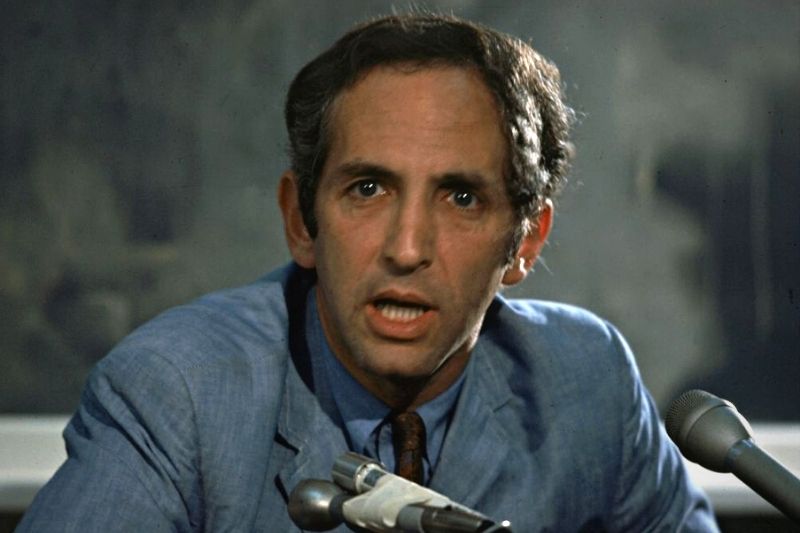Prior to the advent of WikiLeaks, with its audacious releases of classified US government material, one name loomed large on a similar theme. Daniel Ellsberg, albeit with a lighter load, drew attention to the way various US administrations had manipulated and distorted his country’s involvement in the Vietnam War.

Ellsberg was, in many ways, the ideal figure to blow the whistle on such conduct. He was always in proximity to power, its wielders, and the decision makers. He was also a committed employee, a steadfast believer in the counter-revolutionary program towards communism embraced by the Truman administration in the 1950s. During his time working as a defence analyst at the RAND Corporation, he modishly explored wargame scenarios that might entertain the use of nuclear weapons, including the prospect of a surprise attack by the Soviet Union.
While working at RAND, he visited Haverford College in August 1969, where his attendance at a conference of the War Resisters’ International proved seminal. While initially finding the views of the participants hard to swallow for their simplicity and unnecessary dogmatism, Ellsberg recalls in his memoir Secrets that a demonstration against the trial of draft resister Bod Eaton changed matters. ‘I had become free of the fear of being absurd, of looking foolish, for stepping out of line.’
From being free of the fear of being absurd, listening to the words of activist Randy Kehler congealed his sentiments. This establishment figure of the US imperium had taken it upon himself to make a contribution to ending, if not the war in Indochina, then certainly US involvement in it.
The classified Pentagon Papers, comprising some 7,000 pages, came to be seen as the perfect vehicle through which debate would be stimulated. It revealed, all too vividly, the beliefs by such individuals as President Lyndon Johnson that the Indochina War was unwinnable. But the retaliation from the Nixon administration was swift and violent. ‘Just get everything out,’ demanded President Richard Nixon of Attorney General, John Mitchell. ‘We want to destroy him in the press.’
Both Ellsberg and Bob Easton, his associate who had supplied assistance in copying the Pentagon Papers, were subsequently charged with conspiracy, espionage, and larceny. Their possible prison terms: 115 years and 35 years respectively.
The case eventually collapsed in near farcical circumstances. The presiding judge, William M. Byrne Jr., dismissed the action in May 1973, citing various cases of serious government misconduct. There was the burglarising of the Beverly Hills offices of Ellsberg’s psychiatrist, Dr Lewis Fielding, the handiwork of the infamous ‘White House Plumbers’. There had been documented cases of illegal wiretapping by the FBI of conversations between Ellsberg and Morton Halperin, the latter responsible for supervising the Pentagon Papers study. Judge Byrne also revealed that he had been offered the role of FBI director by John Ehrlichman, the President’s assistant for domestic affairs. Ellsberg had escaped, if barely, the noose of the Espionage Act of 1917.
'Ellsberg teaches us the sheer cost of giving the game away, especially when that game so happens to be rotten. With tribal ferocity, establishments will turn on those who reveal their misdemeanours and deceptions. What made his case unique was his positioning near the locus of power, that he was, himself, a paragon of the very thing he was giving away.'
Ellsberg’s story has a very contemporary resonance. Testifying in Julian Assange’s extradition trial proceedings in 2020, he explained that his ‘own actions in relation to the Pentagon Papers and the consequences of their publication have been acknowledged to have performed such a radical change of understanding.’ In his opinion ‘the WikiLeaks publications of 2010 and 2011 were of comparable importance.’
His testimony was also insightful for reminding the court that the Espionage Act, which inspires 17 of the 18 charges against Assange, eschewed the motives of the discloser of national security information. Such charges are treated as ‘strict liability’ offences, making intent irrelevant. As he told the Central Criminal Court in London, the Act effectively disallowed genuine whistleblowing to permit ‘you to say you were informing the polity. So I did not have a fair trial, no one since me had a fair trial on these charges and Julian Assange cannot remotely get a fair trial under those charges if he was tried.’
Ellsberg teaches us the sheer cost of giving the game away, especially when that game so happens to be rotten. With tribal ferocity, establishments will turn on those who reveal their misdemeanours and deceptions. What made his case unique was his positioning near the locus of power, that he was, himself, a paragon of the very thing he was giving away. And for doing so, he always demanded more. As he remarked to journalist Sanford Ungar in a symposium held at Georgetown University in February 2017, ‘Something like the Pentagon Papers should be coming out several times a year.’
In reflecting about Ellsberg’s legacy, Spencer Ackerman detected a certain, rather depressing trend: whistleblowing since the Pentagon Papers has been characterised by those more distant from the centre of power. They have tended to be such noble functionaries such as Private Chelsea Manning, or the drone program whistleblower Daniel Hale, punished for their disloyalty rather than meritorious disclosures. In the aftermath of the September 11, 2001 attacks on the United States, no one equivalent to Ellsberg has stepped up to the plate. ‘The people of Ellsberg’s equivalent rank and early-career promise more typically chose to serve the War on Terror, not resist it, going along with atrocities abroad and democratic destabilization at home.’ Under threats of retaliation and punishment, the security establishment continues to sin with minimal exposure.
Dr. Binoy Kampmark was a Commonwealth Scholar at Selwyn College, Cambridge. He currently lectures at RMIT University.
Main image: American political activist Daniel Ellsberg speaks in front of microphones in 1975. (Hulton Archive / Getty Images)